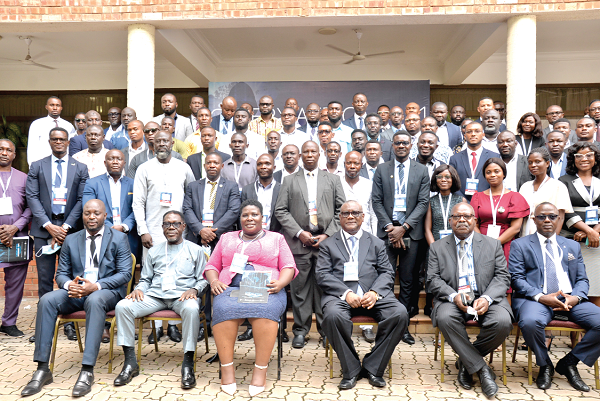
Cyber crime experts gather in Accra
Security professionals, lawyers and cyber crime investigators in the Economic Community of West African States (ECOWAS) have gathered in Accra for a four-day training aimed at enhancing investigations and prosecution of e-crimes in the region.
The training, which is benefiting judges and forensic experts, is also to ensure a safer and more secure cyberspace.
It is being organised by the Centre for Strategic and Defence Studies (CSDS), Africa, in collaboration with INTERPOL, the Security Governance Initiative (SGI) Secretariat of the Ministry of National Security, the Association of Private Investigators, Ghana and Lex Mundus and Cencla, an international law firm.
Dubbed: “Cyberx Africa 2021”, the training will focus on issues on cyber law, incidence response, mobile and digital forensic investigations and international co-operation for the effective investigation and prosecution of cyber and terrestrial crimes in ECOWAS countries.
Education
Speaking at the opening of the training, a Justice of the Supreme Court of Ghana, Prof. Emmanuel Nii Ashie Kotey, said fighting cyber crime would require a multi-stakeholder approach, with the collaboration of all relevant parties.
"No government, no police force, no industry can tackle the challenges of cyber crime alone," he said.
He pointed out that to win the fight, a multi-agency approach involving law enforcement, the Judiciary, academia, industry, civil society, the media and relevant international stakeholders working together and sharing ideas was crucial.
ICT
Prof. Kotey said Information and communications technologies offered one of the greatest opportunities to address the continent's developmental challenges, yet their extensive use had triggered an increased rate of cyber crimes.
"Responding to the emerging threat posed by cyber crime and cyber terrorism is now globally a top national security issue," he said.
Citing the 2019 Internet threat assessment report of the Centre for Strategic and Defence Service Africa and the Interpol Africa cyber threat assessment which was published in 2021, he said cyber crimes were highlighted as fundamental threats on the crime landscape.
The threat landscape in Africa, he said, had seen many characters, such as cyber fraud, social engineering, ransom ware and other forms of attacks on the rise.
State cooperation
He said the transnational nature of cyber crime created significant jurisdictional challenges for law enforcement, with regard to securing and analysing electronic evidence in countries where attacks originated.
He, therefore, urged states in Africa to cooperate with other regions to be successful with cyber crime investigation and prosecution.
Collaboration
The Chief Director of the Ministry of National Security, Lt Col Ababio Serebour (Rtd), said progress in effective cyber crime prevention would depend on the willingness of cyber crime investigators to collaborate to call out and punish online crimes targeting individuals, companies and governments around the world.
He said since February 2016, the Security Governance Initiative Secretariat of the Ministry of National security had supported efforts at cyber risk assessments, national cyber security policy document development and improvement in the legal regime of cyber security.
Last month, he said, the ministry collaborated with the Cyber Security Authority in training the National Security Technical Working Group.
The Director of the SGI and Coordinator of the Ministry of National Security, Mr Osei Bonsu Dickson, said the three main elements that threatened Ghana were cyber security, maritime security and border security.
The acting Executive Director of the CSDS, Dr Angela M. Lamptey, said the only way to counter the upsurge in cyber crime was to enhance the capacity and the preparedness of Africa's forensic information, security professionals, investigators, legal practitioners, intelligence and defence officials.
The CSDS, she said, would, from next month, offer free online coding classes for up to 1,000 people in Africa.
